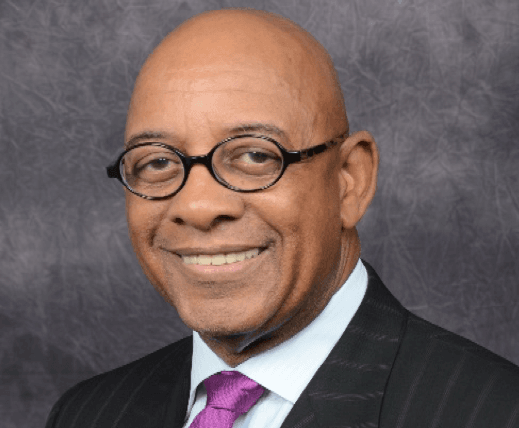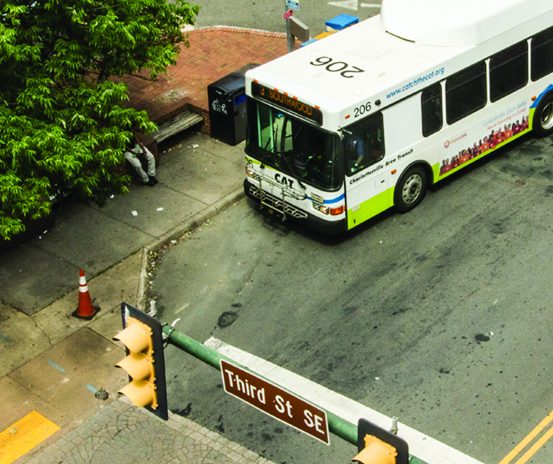Collective bargaining approved
Charlottesville City Council unanimously passed a long-awaited collective bargaining ordinance during its October 3 meeting, giving many city employees the right to unionize. After union supporters pushed back against the ordinance initially proposed by interim City Manager Michael Rogers and D.C.-based law firm Venable LLP in August, city leadership and Venable representatives worked with the Amalgamated Transit Union, representing Charlottesville Area Transit employees, to improve the ordinance, and took public comments into consideration.
While the original ordinance limited unionizing to police, firefighters, and bus drivers, and only allowed units to bargain over wages and salaries, working conditions, and non-health and non-welfare benefits, the revised ordinance creates three additional units—Labor and Trades, Administrative and Technical, and Professional—and permits bargaining over health and dental insurance premiums, deductibles, and co-payments, as well as disciplinary procedures, which may be negotiated using binding arbitration. Only three units are allowed to be certified at first, but the other three can be recognized after the city’s first year of bargaining.
The final ordinance gives employees the right to request a representative during disciplinary interviews, use city technology for union communications, and hold union meetings on city premises, among other rights. It also clarifies prohibited labor practices and unit certification procedures.

If mediation fails, all parties are now required to automatically adopt a neutral fact-finder’s recommendations (the original proposal allowed the city manager or City Council to reject the recommendations). If a party disputes the recommendations, then council will hold a public hearing regarding the issue, and take a binding vote on how to resolve it.
“We’re really pleased with the outcome of what’s happened here,” said John Ertl of the ATU during a public hearing on the ordinance. “It’s not everything we wanted, but it’s a strong step forward for the city’s workers.”
However, several community members urged the city to exclude police from unionizing, claiming it could put a stop to the city’s criminal justice reforms.
“Unions would go further to decrease police accountability … [and] interfere with the work” of the Police Civilian Oversight Board, said Kate Fraleigh. “Police have already shown themselves to be quite well represented by the Police Benevolent Association, and that PBA did a serious number on our city [in] the face of reform,” added Brandon Collins.
Mayor Lloyd Snook explained that the local PBA sent a letter to council last month asking to be included in collective bargaining, and claimed Charlottesville—which “does not actually have a police violence problem”—would not have the same issues as bigger cities with police unions.
“In many cases what has been the problem has been mandatory arbitration of the grievance procedures,” said Snook, “so that’s if you end up with somebody being fired and the person doesn’t like the fact that he or she is being fired, then you have mandatory arbitration, which can result in the person being put back in.”
Councilor Michael Payne noted that PCOB matters are not subject to negotiation under the revised ordinance. “I do think there’s been real thought given to ensuring there is still accountability for police,” he said.
The new ordinance will go into effect January 1, 2023, allowing unions to be certified as early as March 2023. If the city and units engage in mediation or fact-finding, then a collective bargaining agreement may not take effect until July 1, 2024, at the start of the new fiscal year.
In brief
CAT pay raises
Starting pay is now $21 per hour for Charlottesville Area Transit operators and school bus drivers, and $18 per hour for bus aides, interim City Manager Michael Rogers announced during City Council’s October 3 meeting. All bus drivers, technicians, and maintenance workers with more than one year of service will also receive a 12 percent market adjustment raise. Rogers noted that CAT—which is currently down 20 transit operators, and 25 school bus drivers—is able to fund the raises due to its large number of vacancies. “We hope that this pay increase will continue to provide incentive and withdraw back the people we need,” he said.
School boards reject Youngkin policy
The Charlottesville City and Albemarle County school boards have called on Gov. Glenn Youngkin to drop his controversial proposed transgender student policy and consult with local school districts on new guidelines. “It is unfortunate that the proposed policies were not research-based and are without the input of school divisions and the population most directly and severely affected,” reads the county board’s October 5 statement. “We will not retreat to fear, misunderstanding, and bullying,” reads the city board’s October 6 statement.

Police chief update
POLIHIRE plans to begin interviewing police chief candidates later this month, and provide a recommendation to Rogers in early November. The D.C.-based executive search firm is currently holding meetings with community stakeholders, and has met with Charlottesville police to “discuss what the department would like to see in a new chief,” reads the city manager’s October report.
First Hindu Heritage Month
This October marks Virginia’s first-ever Hindu Heritage Month, thanks to a resolution passed this year by Del. Suhas Subramanyam—the first Indian American and Hindu American elected to the General Assembly. The resolution recognizes several Hindu holidays in October, including Bathukamma and Navaratri. Hindu Heritage Month “is a symbol of recognition and celebration for the contribution of Hindus to the Commonwealth, and an opportunity to continue to grow awareness and appreciation,” Subramanyam said in an October 3 statement.
